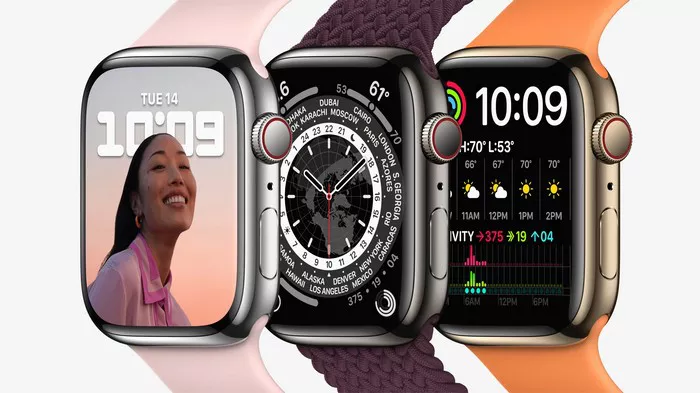Evaluating the Apple Watch: GPS vs. Cellular Model
When considering purchasing an Apple Watch, one of the primary decisions you’ll need to make is whether to opt for the GPS-only model or the Cellular (GPS + Cellular) model. Each option comes with its own set of features, benefits, and considerations. In this comprehensive guide, we’ll break down the differences between the two models to help you determine which is better suited to your needs.
An At-a-Glance Breakdown:
GPS Model:
- Less expensive: Generally, the GPS-only model is more affordable than its Cellular counterpart, making it an attractive option for budget-conscious consumers.
- Lightest weight: The absence of a cellular chip contributes to a lighter overall weight, enhancing comfort during extended wear.
- Slightly longer battery life: Without the additional power drain from cellular connectivity, the GPS-only model typically boasts a longer battery life, ensuring extended usage between charges.
- Available in multiple color choices: Users can choose from a variety of aluminum casing colors to suit their personal style preferences.
- Requires iPhone nearby for some tasks: Certain features, such as making phone calls or accessing cellular data, require the presence of an iPhone nearby for the GPS-only model.
- Comes only in aluminum: The GPS-only model is limited to aluminum casing, which may not offer the same level of durability or aesthetic appeal as higher-end materials.
Cellular Model (GPS + Cellular):
- More expensive: The Cellular model typically comes with a higher upfront cost and may require a monthly cellular connection fee, making it a more significant investment.
- Supports Apple Music and Podcasts streaming anywhere: With standalone cellular connectivity, users can stream music and podcasts directly from their Apple Watch, even without their iPhone nearby.
- Available in aluminum, stainless steel, and titanium: The Cellular model offers a wider range of material options, allowing users to choose a model that best suits their preferences for durability and aesthetics.
- Works without an iPhone nearby: The Cellular model provides greater independence, allowing users to make calls, send messages, and access data even when their iPhone is out of range.
- Supports Family Setup: Ideal for families, the Cellular model enables users to set up additional watches for family members who may not have iPhones, enhancing convenience and connectivity.
- Requires a monthly cellular connection fee: To maintain cellular connectivity, users will need to pay a monthly fee to their cellular provider, adding to the overall cost of ownership.
Battery Life:
- GPS Model: The absence of a cellular chip typically results in a longer battery life for the GPS-only model, making it a suitable choice for users who prioritize extended usage between charges.
- Cellular Model: The additional power required for cellular connectivity can lead to a shorter battery life for the Cellular model, particularly during periods of heavy usage.
Price:
- GPS Model: Generally more affordable upfront, the GPS-only model offers a cost-effective option for users who don’t require standalone cellular capabilities.
- Cellular Model: With a higher upfront cost and potential monthly cellular fees, the Cellular model represents a greater investment but provides enhanced flexibility and independence.
Use Case:
- GPS Model: Ideal for users who typically have their iPhone nearby and don’t require standalone cellular capabilities. Suitable for most users seeking basic functionality and fitness tracking without the need for constant connectivity.
- Cellular Model: Suited for users who want the freedom to leave their iPhone at home while still staying connected. Particularly beneficial for fitness enthusiasts who want to stream music during workouts or individuals who frequently find themselves in situations where carrying a phone may be impractical.
Materials and Features:
- GPS Model: Limited to aluminum casing and lacks support for Family Setup, making it a more basic option for users who prioritize affordability and simplicity.
- Cellular Model: Offers a wider range of material options, including aluminum, stainless steel, and titanium, catering to users who desire premium construction and durability. Additionally, supports Family Setup, enhancing convenience for families with multiple Apple Watch users.
Conclusion:
In conclusion, the choice between the GPS-only and Cellular (GPS + Cellular) models of the Apple Watch depends on your individual preferences, usage habits, and budget considerations. If you primarily use your Apple Watch as an extension of your iPhone and don’t mind having your phone nearby, the GPS-only model may offer sufficient functionality at a lower cost. However, if you value the freedom to leave your iPhone at home and still stay connected, the Cellular model provides greater independence and flexibility, albeit at a higher price point. By carefully evaluating the features, benefits, and considerations of each model, you can make an informed decision that best aligns with your lifestyle and needs.

